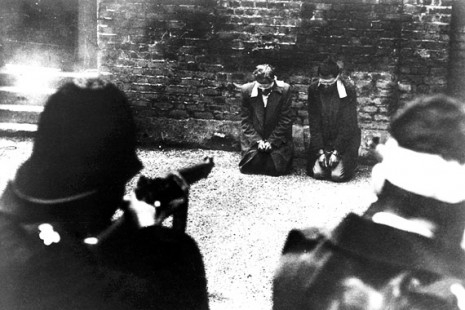
You had 3 minutes to close the windows, pull the curtains, fill basins with water, then collect together foodstuffs, torches and radios, before removing the door from its hinges, leaning it against a wall, covering with cushions or sandbags, and sheltering with your loved ones underneath.
Three minutes.
Time enough for one last smoke, and a tumbler of that 25-year-old Macallan - a dash of spring water, no ice.
At school in the 1970s, we were shown Civil Defense Films on flickering Super 8 projectors that depicted the seeming inevitability of nuclear war. Now it’s localized terrorism, back then it was the annihilation of the country, the planet, us.
Of course, through time, we became inured to all of that, and the thought of an all-out nuclear war became a hovering shadow - sometimes we noticed it, sometimes not. It only seemed real when presented as a film The Day After, or as a TV drama, Threads. But it would have hit home hardest, if the BBC had ignored the pressure from the Labour government, and shown Peter Watkins’ film The War Game.
The BBC withdrew the film from its planned transmission on August 6 1965, the twentieth anniversary of Hiroshima, claiming:
“...the effect of the film has been judged by the BBC to be too horrifying for the medium of broadcasting…”
“Too horrifying” was one of the reasons it should have been aired. Instead we were shown those strangely surreal Civil Defense Films, Duck and Cover, Protect and Survive, in dusty, distracted classrooms, where they had little lasting effect.
The War Game was given a limited cinema release, making it eligible for the Oscars, where it won the Best Documentary Feature award in 1966. Watkins was so outraged by the BBC’s cavils, that he quit the UK for Sweden, and continued to make his distinct, powerful and political films - most recently La Commune (2000), a “6-hour re-enactment of the 1871 Paris Commune which examined the role of media in the modern global economy.”
With The War Game, Watkins continued his:
...experiments in blending fiction and documentary techniques which he had begun with his earlier play Culloden (1964), Watkins presented data drawn from his detailed research - encompassing interviews, Civil Defence documents, scientific studies and accounts of the effects of the Hiroshima and Nagasaki blasts and the non-nuclear devastation of Dresden, Hamburg and other cities during World War II - in the form of charts, quotes and vox-pop style face-to-face interviews with ordinary people. These he embedded into his own imagined scenario of the impact of a blast in Kent following the escalation of an East-West conflict.
The War Game was eventually transmitted in Britain on July 31 1985.
Bonus: Duck & Cover - US Civil Defense Film, 1951.
Bonus: UK Civil Defence Film, 1964.
Bonus Protect & Survive - the warnings, 1975
Bonus - Protect and Survive - the importance of your radio 1975
With thanks to Damien Smith